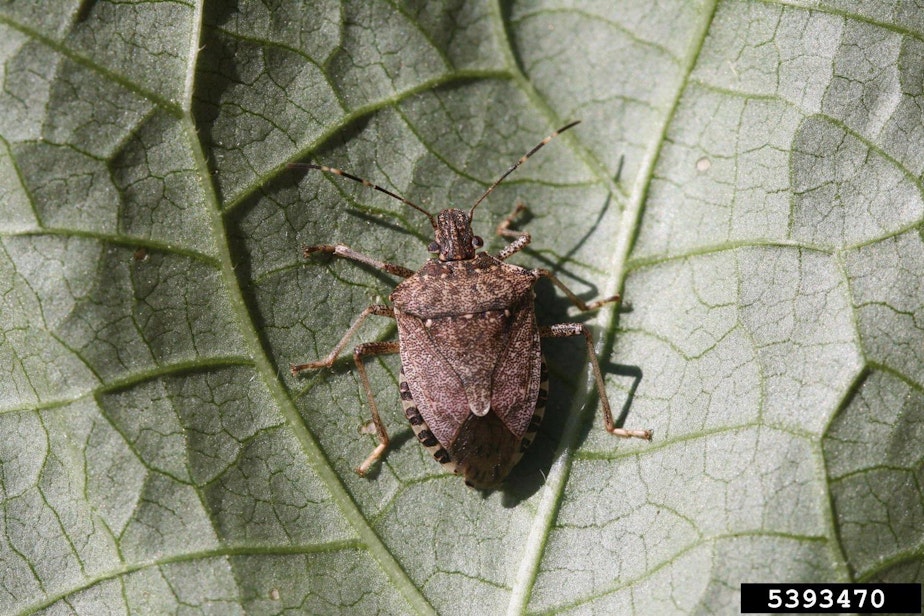The Abstract: Stink bugs, penguins, and climate change, oh my

Washington state produces a lot of scientific research. And all that observation, data collection, and testing of hypotheses can be hard to wade through for everyday, average, non-scientists.
So we’re taking time to break down some recent findings coming out of our Washington braintrust as part of a segment we’re calling, “The Abstract.”
Today, we’re exploring new revelations about how animals adapt to climate change and what that tells us about the future of ecosystems, including an unwelcome and foul-smelling new neighbor here in the Pacific Northwest, and an adorable Patagonian predator.
"They do stink," said Javier Gutierrez Illan, an entomologist at Washington State University. "When they feel threatened, they produce a chemical signal that is a very foul odor for us."
You may recognize the stink bug from your windowsills in the winter. Originally finding their way to the East Coast from South Asia, the brown marmorated stink bug (BMSB) is attracted to dry and warm spaces. Changes in the climate could increase the suitable habitat for these bugs by 70% across the United States.
As a generalist herbivore, these bugs also love to eat just about anything and everything, meaning they love the expansive crops of Washington, making them a nuisance for farmers.
"Predictions are the Spokane Valley, the Idaho Treasure Valley," Illan said. "Some parts in the West Coast, in the Seattle area, are going to be places where the problem is going to get worse. Some others are not going to be affected that much."
Illan's research examines how climate change and global change is pushing these stink bugs farther north, and includes a look at possible countermeasures, including a parasitoid insect called the samurai wasp.
Sponsored
You can read the study on brown marmorated stink bugs here.
South of the equator, similar forces are at work with an animal that’s a bit more traditionally cuddly than a stink bug — Magellanic penguins.
Briana Abrahms and T.J. Clark-Wolf, researchers in the University of Washington’s department of biology, have spent a lot of time with these web-footed predators.
Using nearly 40 years of data collected by fellow co-author and professor of biology Dee Boersma, the team found that penguin migration is being influenced by what are called "presses" and "pulses." These include short-term climate events like heat waves, and long-term events, such as average rainfall and the health of their breeding grounds.
But there are positive presses and pulses too, like the flow of silt from the Rio de la Plata in Argentina, which provides bountiful food for the penguins.
Sponsored
"Even though some are positive, and some are negative altogether, when you kind of add them all up, they do lead to a predicted long-term decline in this population," Abrahms told Soundside.
"But it's not necessarily a doom and gloom story, because we do know that other colonies along the coast are increasing. And so, we're also interested in seeing over time, is the loss of this one colony... potentially made up by the increase in other colonies? And so that's a question for the long term."
Researchers hope this data will help determine where Magellanic penguins will end up nesting in the future, and those inferences can help determine the best conservation methods.
They also said that these penguins are "sentinel species," and understanding the impacts of widespread change on specific species of predators helps add to a growing body of knowledge on broader changes in our oceans.
You can read more on Magellanic penguins and the Center for Ecosystem Sentinels here.
Sponsored
Listen to the full Soundside segment by clicking the "play" button on the audio above.





